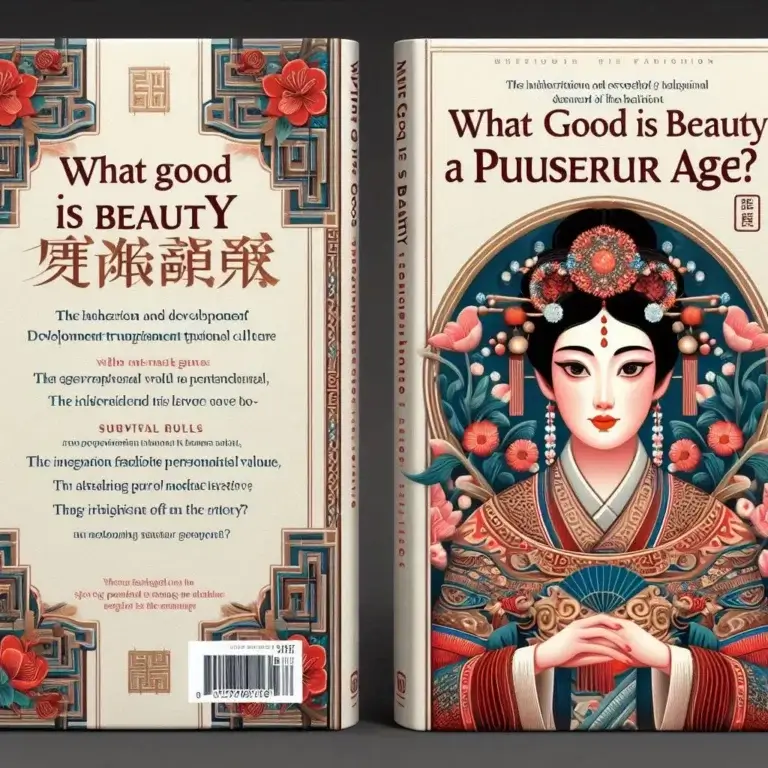Xiao Yu yawned and turned to sleep. Xie Jiayi felt insulted, his hair in disarray, devoid of any will to live, leaning against the bed frame, his limbs as cold as a corpse. In the darkness, his lips moved silently, calling — Lai Wei! Lai Wei! Lai Wei! Lai Wei! Tears trickled down the corner of his eye. His mood was like that of a child with only one coin who made the wrong wish, wanting to jump into the fountain to retrieve the coin and take back the wish, only to find he could no longer find the coin he had thrown in among the thousands. In the mirror, his dark figure was reflected, and the air felt chilling. He moved his hand, touching Xiao Yu’s hair, cool and smooth, like a curtain of water on the bed. Picking up a strand, wrapping it around his fingertip, it seemed every thread was soaked with the sorrow that chilled his heart. Lai Wei! Lai Wei! Lai Wei! His mouth couldn’t rest, as if his stomach was full of “Lai Wei” and he had to spit them all out. It was like that night years ago when he called out to her! That night, after Lai Wei found him on the street, they embraced for so long, as the night grew deeper, his entire weight pressed upon her, Lai Wei pinched his ear, saying, “Let’s go home!” He mumbled, “No, I haven’t hugged enough!” “But I’m cold,” said Lai Wei, pushing him away. “Let’s hug at my place! My mom’s at my uncle’s in the countryside.” Jiayi naively thought he just didn’t want to be apart from her. So, they went to her place. But he overestimated his self-control. Initially, they sat on the couch watching TV like conjoined twins, he hugged her from behind as she poured water, walked to the table in unison, watched her pour water into a cup, then turned back together, carefully walking back to the couch. Even when she went to the bathroom, he let go at the door and waited, only to embrace her again as soon as she stepped out. Such entanglement naturally wasn’t satisfied with just hugging. After dating for over a year, he had only limited himself to kissing, at most taking some liberties, which meant slipping his hand inside her clothes to gently caress her smooth back. But that night, with a bit of alcohol in him, the unrest in his bones started to stir. As Lai Wei was lost in his kisses, his large hand covered her well-developed chest, the warm, smooth, and soft sensation transmitted to his palm, causing him to rub uncontrollably. Lai Wei was overwhelmed, moaning softly. Seizing the moment, he thrust his hand into her shorts, and Lai Wei’s eyes suddenly widened, staring at him. Under her shocked gaze, Jiayi felt like a pervert, awkwardly and reluctantly withdrawing his hand, stuttering, “Sorry… I… I couldn’t control myself.” Lai Wei’s already flushed face turned even redder, lowering her head, not daring to look at him. Jiayi didn’t dare to hug her anymore, sitting properly beside her, though they both secretly relished the lingering taste of that ethereal moment. Lai Wei said, “You’re sitting on my book.” The couch was small, so Jiayi shifted, and they were close again. He whispered, “I still want to hug you, what should we do?” “Then let’s hug,” said Lai Wei, snuggling into his arms. Finally, Jiayi carried her to bed. The narrow single bed had a light green, plain bedsheet, and the quilt was also light green, embroidered with large white Epiphyllum flowers, their petals as white as snow. Jiayi exerted much effort, sweating, but couldn’t enter. Lai Wei, embarrassed, kept her eyes closed, thus not seeing his flushed, embarrassed face. As dawn broke, Jiayi was about to give up, but with one last thrust, Lai Wei suddenly let out a loud cry, struggling, her nails clawing his arms, drawing blood. The blood of her virginity fell on the bedsheet, creating red plum blossoms. She was finally his. “I’m sorry, I’m sorry, Lai Wei…” He half-kneeled, embracing her, apologizing repeatedly. “Jiayi, it hurts so much! Can we stop?” “Okay, stop, stop.” He agreed to everything she said, like a child who had done something wrong, just holding her, calling her name incessantly by her ear, “Lai Wei, Lai Wei, Lai Wei… Lai Wei, this lifetime, I only want you, only you!” “Lai Wei, today I was with another woman!” He silently confessed this. A faint blue light came through the curtains, the luminous hands of the watch pointed to six, Xie Jiayi glanced at Xiao Yu beside him, got up to put on his pajamas, then lay down and closed his eyes. After half a month of rest, Cheng Lan’s body had almost recovered. Lai Fei had originally planned to have a good chat with her, but before they could exchange more than a few words, Ouyang Qingshao arrived. Using the excuse of having something to do, she went up to the seventh floor to visit her mother. Unfortunately, she arrived at an inopportune time as Lai Ru Yun was asleep. She quietly left the ward and decided to go downstairs to buy a magazine to pass the time. Unexpectedly, she encountered Xiao Yu in the hallway. Lai Fei had forgotten about her, so when Xiao Yu called out to her, she took a while to remember that they had met at a banquet. “Hello!” she smiled at Xiao Yu. Xiao Yu smiled back. “Do you remember me?” “Of course, the best-selling author! Did you bring any of your books? That way, I wouldn’t need to go downstairs to buy a magazine!” she teased. “Nope! I’ll bring you some next time!” Xiao Yu took out a piece of paper and a pen from her bag and wrote down a number for her. “Here’s my mobile number. Call me when you’re free, and I’ll bring them over for you—oh, by the way, what are you doing here?” “My mom is sick, receiving treatment here! What about you?” “I’m here to visit a sick relative too!” Lai Fei couldn’t think of anything else to say and, after pocketing the phone number, said, “You go ahead, I’ll call you when I’m free!” “Okay, bye!” Xiao Yu waved at her. Just as Lai Fei entered the elevator, the door of a ward on the right opened, and Xie Jiayi stepped out. Seeing Xiao Yu looking towards the elevator, he asked, “What are you looking at?” Xiao Yu playfully blinked and said with a laugh, “Your girlfriend, but I should add ‘ex’.” Xie Jiayi was taken aback. “Are you talking about Lai Fei?” “Yes, I just ran into her, chatted a bit. She said her mom is sick and also staying here. Quite a coincidence, right?” “Do you know which ward?” Xiao Yu spread her hands and shrugged. “No idea, she didn’t say, but I think she’s probably on this floor!” Xie Jiayi’s gaze swept over the row of wards, then he smiled and said, “I have to head back to the company later, do you want to come with me?” “Yes, wait for me, I’ll just go tell my cousin!” After Xiao Yu went back into the ward, Xie Jiayi began searching each room. At the fourth ward on the left, he saw the nameplate “Lai Ru Yun.” He picked up his phone and dialed a number—”…Help me check on a patient here, named ‘Lai Ru Yun,’ the ‘Lai’ from come and go, ‘Ru’ as in if, ‘Yun’ with grass above and cloud below, in the VIP ward… I want to know what illness she has!… Don’t talk to me about rules… I’m not in a position to do this myself, call me back after you find out!”
Chapter 12
The sun broke through the clouds after the rain, its edges lined with red, casting a thousand brilliant rays that illuminated the bustling streets and the throngs of people emerging. Inside the car, the air was naturally quiet, and when the phone in Xie Jiayi’s shirt pocket buzzed, his heart skipped a beat before he put on his earphones. The voice on the other end smoothly reported the findings, and Xie Jiayi silently repeated to himself what he heard: admitted to the hospital in September four years ago… stroke… total paralysis… has received treatment at other hospitals…
“I understand, thank you!”
“Jiayi, we’re here, pull over!” Xiao Yu gently nudged the stunned Xie Jiayi.
“Oh, right!” Xie Jiayi quickly turned the steering wheel, parking the car by the roadside.
“Drive safely!” Xiao Yu said as she got out of the car.



